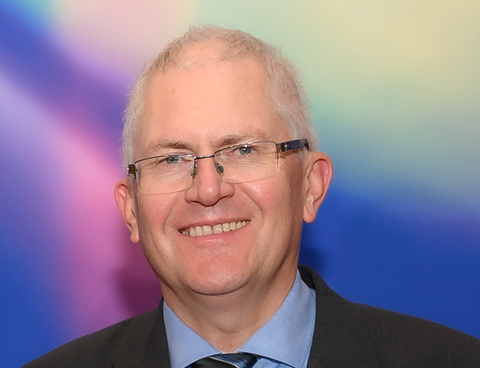Jul 31, 2025
Success in the DFG's Reinhart Koselleck Program: TUD Chair Jürgen Czarske secures prestigious research funding of around EUR 1.5 million
The Chair of Measurement and Sensor System Technique (Prof. Jürgen Czarske) at TUD Dresden University of Technology has been awarded funding from the renowned Reinhart Koselleck Program of the German Research Foundation (DFG) for its research project “Physics-Informed Deep Learning Systems for Secure Information Transmission with Multimode Fibers” (Phys-Deep-Fiber). With this program, the DFG promotes particularly innovative and ambitious research projects and offers considerable scope for research with a funding of around EUR 1.5 million over five years.
The research team aims to use physics-based neural networks to propel fiber-optic information transmission to the next level. This is already the second Koselleck grant on a topic related to energy and process technology for Prof. Czarske since 2014:
"With its flexible structure spanning five years, the Reinhart Koselleck Project will provide my team with the opportunity to pursue these ideas in a fundamental way. Koselleck projects are awarded very selectively and according to strict criteria in a multi-stage review process. It is a phenomenal vote of confidence, a great honor, and confirmation of the innovative paths we have taken as a team, and an incentive for new scientific breakthroughs," said Prof. Jürgen Czarske.
Contributions to the “explainability” and high energy requirements of AI solutions
Artificial intelligence (AI) has established itself in areas ranging from dialogue systems such as ChatGPT to the interpretation of CT scans. High-profile research awards have already been presented for AI-based breakthroughs in physics and chemistry. Fundamental problems associated with AI include “explainability” — i.e., how AI applications arrive at their results — and the enormous energy demand. Czarkse and his team will also address these questions in the Koselleck project they have secured funding for.
Physically-based deep learning systems are increasingly proving to be universal tools for a plethora of applications, much like Swiss Army knives. In the future, these will include optical communication and sensor technology, automated driving, intelligent (endo) microscopy for biomedicine, metaverse applications, modern laser-based manufacturing/production technologies, quantum communication, quantum imaging, and quantum computing.
Increasing information security in fiber optic communications
Fiber optic communication technologies form the backbone of the internet. Further advances are essential not only for the continuing exponential growth of data rates, but also for data security and energy-saving paradigm shifts in information technology. The new Koselleck project also addresses novel XAI-based measurement systems, combining data-driven algorithms with physical models. Optical neural networks are trained using artificial intelligence but do not require power-hungry GPUs. Optical neural networks point to a paradigm shift not only in energy consumption and sustainability, but also in real-time measurement of light scattering.
About: Prof. Jürgen Czarske
Prof. Jürgen Czarske is Chair Professor and Director at TU Dresden and heads the BIOLAS Competence Center and the Institute for Fundamentals of Electrical Engineering at the Faculty of Electrical and Computer Engineering. He is also a co-opted professor of physics and adjunct professor in Arizona. Prof. Czarske has been honored with the Joseph Fraunhofer Award / Robert M Burley Prize in Washington D.C., OPTICA (Society for Advancing Optics and Photonics Worldwide, USA); Laser Instrumentation Award, IEEE (Institute of Electrical and Electronics Engineers, USA), Chandra S. Vikram Award in Optical Metrology, San Diego by SPIE (International Society of Optics and Photonics, USA).

